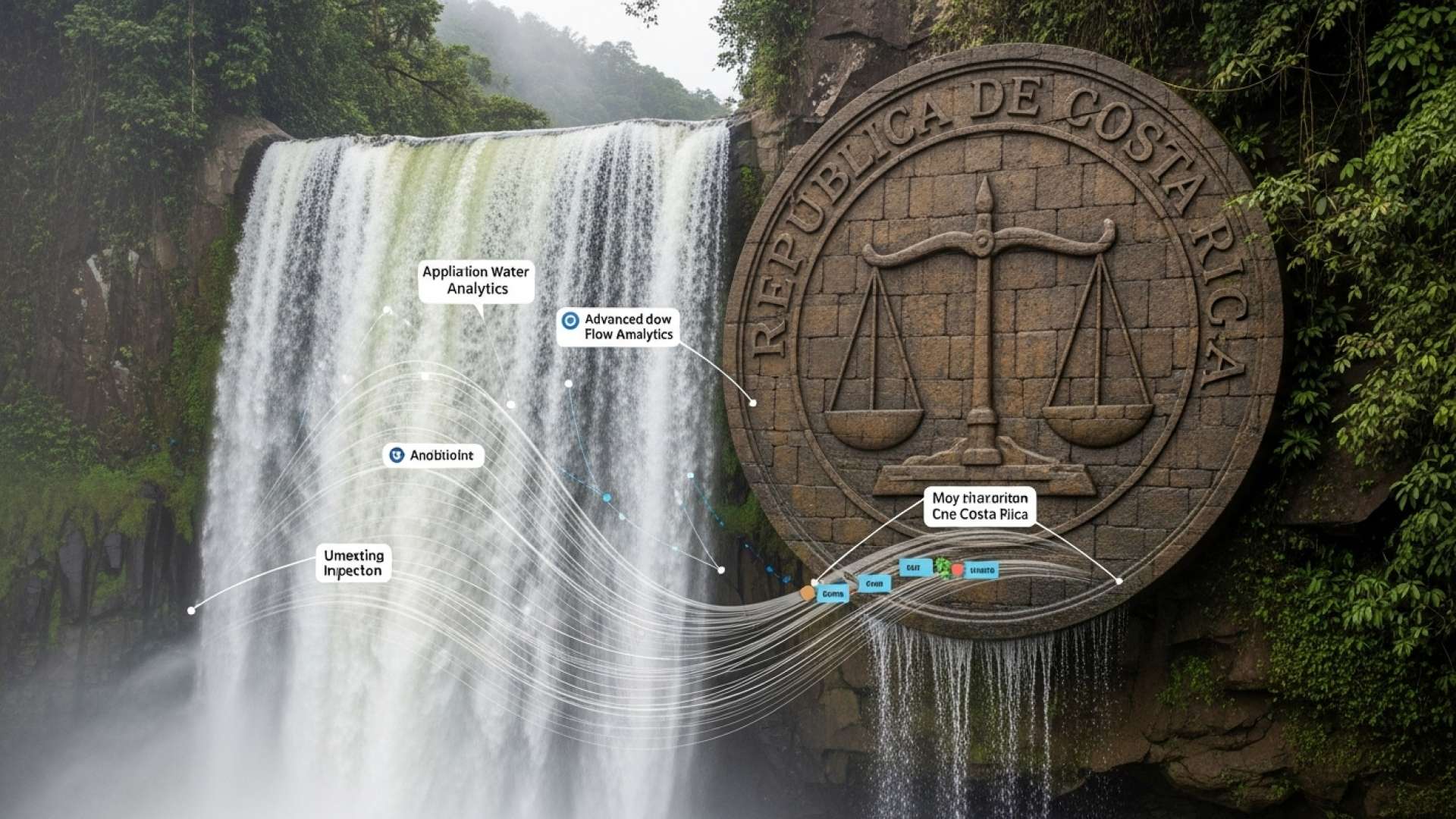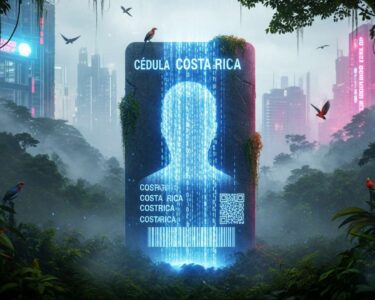San José, Costa Rica — San José – As Costa Rica prepares for its 2026 national elections, a significant and growing segment of the electorate will consist of naturalized citizens. Data from the Supreme Elections Tribunal (TSE) reveals that over 94,500 naturalized individuals are eligible to vote, representing 2.55% of the total electoral roll. This figure, a 10.7% increase since the 2024 municipal elections, underscores the crucial role of naturalization in shaping the nation’s democratic fabric. Yet, behind these numbers lies a complex, often lengthy, and costly journey governed by a legal framework that is both a regional benchmark for human rights and a source of practical frustration for applicants.
Costa Rica’s approach to nationality is built on a sophisticated and rights-focused legal structure, overseen by the autonomous Supreme Elections Tribunal rather than a political body. The system masterfully blends two core legal principles: ius soli (right of the soil) and ius sanguinis (right of blood). This allows for nationality to be acquired by being born in the country to a Costa Rican parent, being born abroad to a Costa Rican parent, or being born in Costa Rica to foreign parents, with the latter two requiring a formal declaration of option.
To shed light on the intricacies of the naturalization process and the legal framework governing citizenship in the country, TicosLand.com spoke with Lic. Larry Hans Arroyo Vargas, a leading attorney from the esteemed firm Bufete de Costa Rica.
While the law clearly outlines paths to citizenship—primarily through descent, residency, or marriage to a Costa Rican national—applicants often underestimate the administrative rigor. The key is not just meeting the minimum time requirements, but meticulously preparing and presenting a flawless dossier of documents. Any inconsistency can lead to significant delays, making professional guidance invaluable in navigating the bureaucratic process efficiently.
Lic. Larry Hans Arroyo Vargas, Attorney at Law, Bufete de Costa Rica
Lic. Arroyo Vargas’s insight powerfully underscores that the journey to citizenship is as much about administrative precision as it is about residency duration. This focus on a flawless dossier is a critical takeaway for any applicant, and we sincerely thank Lic. Larry Hans Arroyo Vargas for lending his invaluable perspective on navigating this complex process.
The distinction between nationality and citizenship is a cornerstone of the system. Nationality is the fundamental legal bond with the state, acquired at birth. Citizenship, however, is the key to political participation. The Constitution defines it with technical precision.
the set of political rights and duties that correspond to Costa Ricans over eighteen years of age
Article 90, Constitution of Costa Rica
For the thousands of foreign residents who choose Costa Rica as their home, the primary path to this status is naturalization. The country offers several avenues, most commonly through residency. The law provides a preferential five-year residency requirement for nationals from other Central American countries, Spain, and Ibero-American nations. For all other foreigners, the standard requirement is seven years of official residency. A separate, faster track exists for those married to a Costa Rican citizen, requiring two years of both marriage and residency.
A pivotal moment in the nation’s legal history came with the constitutional reform of 1995. This landmark change established a principle that places Costa Rica at the vanguard of international law, cementing the bond between the state and its people.
The status of being Costa Rican is not lost and is inalienable
Article 16, Constitution of Costa Rica
This reform effectively abolished the loss of nationality upon acquiring another, fully embracing dual and multiple nationalities. It was a response to the growing Costa Rican diaspora and a recognition of a globalized world, allowing new citizens to integrate without severing legal ties to their countries of origin—a practice still required by neighbors like Panama.
Despite this progressive legal architecture, the practical implementation presents significant challenges. The official timeline for a naturalization process is 285 business days, or roughly 14 months. However, legal experts and applicants consistently report that procedures frequently stretch to two, three, or even more years. These delays are attributed to a high volume of applications, the complexities of verifying foreign documents, and the need for coordination between multiple agencies, including the Directorate of Immigration, the Ministry of Public Education for required history and language exams, and the Judiciary for background checks.
The process also involves considerable direct and indirect costs. While the administrative fee is nominal, applicants face expenses for obtaining, translating, and internationally authenticating documents (via Apostille or consular legalization), exam fees, and often, the cost of legal representation to navigate the bureaucratic maze. These financial and time-related burdens can become significant barriers, particularly for applicants from vulnerable socioeconomic backgrounds.
The Constitutional Chamber of the Supreme Court has played a vital role in safeguarding applicants’ rights, establishing that the TSE’s administrative discretion is not absolute. Jurisprudence consistently demands that any denial of citizenship be based on reasonable, proportional, and well-founded criteria, particularly when evaluating subjective requirements like “good conduct.” This judicial oversight ensures the process remains grounded in the rule of law, acting as a crucial check against potential arbitrariness.
Ultimately, Costa Rica’s citizenship system is a paradox. It stands as a model of legal and constitutional integrity, deeply aligned with international human rights standards. At the same time, its administrative machinery struggles to keep pace, creating a gap between legal promise and practical reality. As the number of naturalized citizens continues to grow, closing this gap through modernization, digitalization, and increased resources will be essential to uphold the nation’s commitment to an inclusive and accessible democracy.
For further information, visit tse.go.cr
About the Tribunal Supremo de Elecciones (TSE):
The Supreme Elections Tribunal of Costa Rica is an autonomous constitutional body responsible for organizing, directing, and supervising all acts related to elections. Uniquely in the region, it also holds exclusive jurisdiction over matters of nationality, including the processing and resolution of all naturalization and option applications through its technical dependency, the Civil Registry.
For further information, visit poder-judicial.go.cr
About the Sala Constitucional de la Corte Suprema de Justicia:
The Constitutional Chamber, commonly known as the “Sala IV,” is the highest court in Costa Rica for constitutional matters. It is responsible for guaranteeing the supremacy of the constitution, international treaties, and fundamental rights. Through its jurisprudence, it exercises rigorous judicial review over administrative acts, including decisions made by the TSE regarding citizenship, ensuring they adhere to principles of due process, reasonableness, and proportionality.
For further information, visit corteidh.or.cr
About the Corte Interamericana de Derechos Humanos (CIDH):
The Inter-American Court of Human Rights is an autonomous judicial institution of the Organization of American States, with its seat in San José, Costa Rica. Its purpose is to apply and interpret the American Convention on Human Rights. Its rulings and advisory opinions, such as the influential OC-4/84 requested by Costa Rica, have profoundly shaped the understanding of nationality as a fundamental human right throughout the Americas and have been binding on Costa Rican domestic law.
For further information, visit unhcr.org
About ACNUR (United Nations High Commissioner for Refugees):
The Office of the United Nations High Commissioner for Refugees, or UNHCR, is a global organization dedicated to saving lives, protecting rights, and building a better future for refugees, forcibly displaced communities, and stateless people. In Costa Rica, ACNUR has collaborated with the government, including the TSE, to implement international commitments to eradicate statelessness, providing technical support in landmark cases such as the successful naturalization of the first officially recognized stateless person in the country.
For further information, visit bufetedecostarica.com
About Bufete de Costa Rica:
Bufete de Costa Rica is a pillar of the legal community, esteemed for its foundational principles of integrity and an unrelenting pursuit of excellence. The firm consistently pioneers innovative legal strategies while serving a broad spectrum of clients, reflecting its dynamic and forward-thinking approach. Beyond its professional practice, a core tenet of its mission is to empower the public by demystifying complex legal concepts, thereby contributing to the development of a more knowledgeable and capable society.









